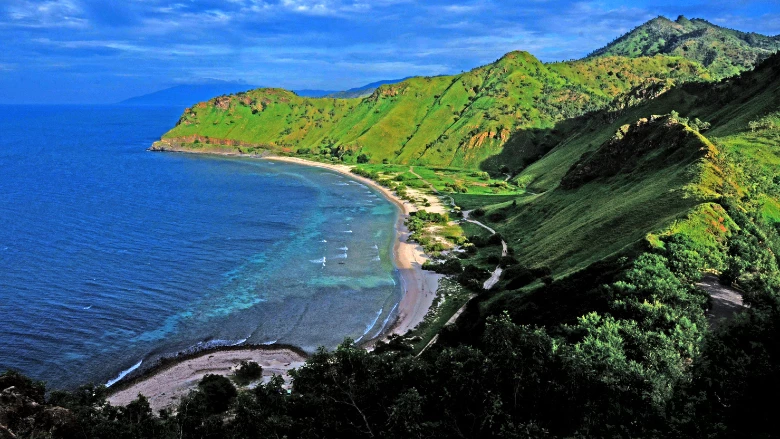
Asia’s youngest country, Timor-Leste, is pursuing an ambitious trade policy agenda aimed at deepening its integration into regional and global markets and improving living standards for its 1.3 million people. Looking back on the last two decades since securing its independence, however, the contribution of trade to the country’s growth and development has remained largely untapped. Export growth has been limited while the export base remains unduly narrow —oil, gas, coffee, and tourism services account for more than 95 percent of exports — exposing the economy to significant internal and external vulnerabilities.
In the past several years, Timor-Leste – which occupies half of the island of Timor at the eastern end of Indonesian archipelago -- has been determined to address its economic vulnerabilities by forging multilateral, regional, and bilateral trade agreements. Although not yet a member of any trade grouping, Timor-Leste is pursuing accession to the World Trade Organization (WTO), the Association of Southeast Asian Nations (ASEAN), and the EU-Pacific Economic Partnership Agreements (EPA).
Sustained by high-level political commitment, accession negotiations have recently gained momentum. Initiated in 2015, WTO talks have progressed rapidly since 2020, with the goal of wrapping up by the end of 2023 for possible delivery at the WTO’s next Ministerial Meeting (MC-13) in February 2024. Negotiations to join ASEAN also kicked into high gear in November 2022, after the group’s decision to admit Timor-Leste as the 11th member “in principle,” granting it observer status until it fulfills the criteria to become a full member. Timor-Leste is also aiming to expand trade with the European Union by joining the EU-Pacific Economic Partnership Agreements, which currently include Fiji, Papua New Guinea, Samoa, and the Solomon Islands , all of which benefit from duty-free and quota-free exports to the EU.
Accession to the WTO and ASEAN blocs would represent a major qualitative boost to Timor-Leste’s trade and investment governance. It would cement the country’s commitment to a rules-based, open, stable, transparent, and predictable trade-policy regime. It would also underscore the country’s commitment to good governance as Timor-Leste pursues legislative and domestic policy reforms. What’s more, such reforms could help attract the foreign direct investment needed to boost the country’s narrow productive capacity, while Timorese producers would benefit from improved market access opportunities.
Accession to the WTO and to ASEAN are complementary and mutually supportive processes, yet close attention is needed to their proper sequencing, not least because of prevailing resource, technical, and capacity constraints. Given its far greater degree of advancement, Timor-Leste should prioritize completing its WTO accession journey. WTO membership will provide the core foundational underpinnings for deeper and more comprehensive ASEAN commitments.
Timor-Leste’s pursuit of trade integration takes place within a challenging external and domestic policy environment. Despite ambitious integration efforts and the country’s continued commitment to an open trade policy stance, the 2020 Economic Recovery Plan highlighted the need for import substitution and protection of local infant industries. Such objectives were operationalized with the January 2023 doubling of Timor-Leste’s uniform import duties, from 2.5 to 5 percent, with the stated aims of boosting low revenue collection, reducing imports, and improving prospects for diversification. To achieve these objectives, however, Timor-Leste will need to significantly scale up domestic productive capacity alongside policies to address supply-side constraints weighing on the country’s trade performance.
To fully reap the benefits of integration for the Timorese economy and people, a national trade strategy is needed to tie together the many domestic and international trade policy initiatives currently at play. Such a roadmap would help to articulate how ongoing trade initiatives interact with each other. It would also usefully situate them against broader national development priorities. Through funding from the Enhanced Integrated Framework, the World Bank is supporting the government of Timor-Leste to develop a strategic trade policy framework, in partnership with the International Trade Centre. Looking ahead, continued engagement will be necessary to ensure full compliance with WTO and ASEAN commitments and in lending support to investment projects aimed at boosting Timor-Leste’s export capacity in the promising sectors identified by the World Bank’s forthcoming Country Economic Memorandum.



Join the Conversation